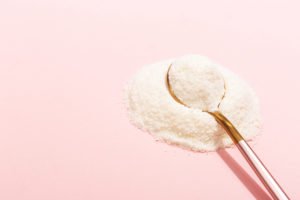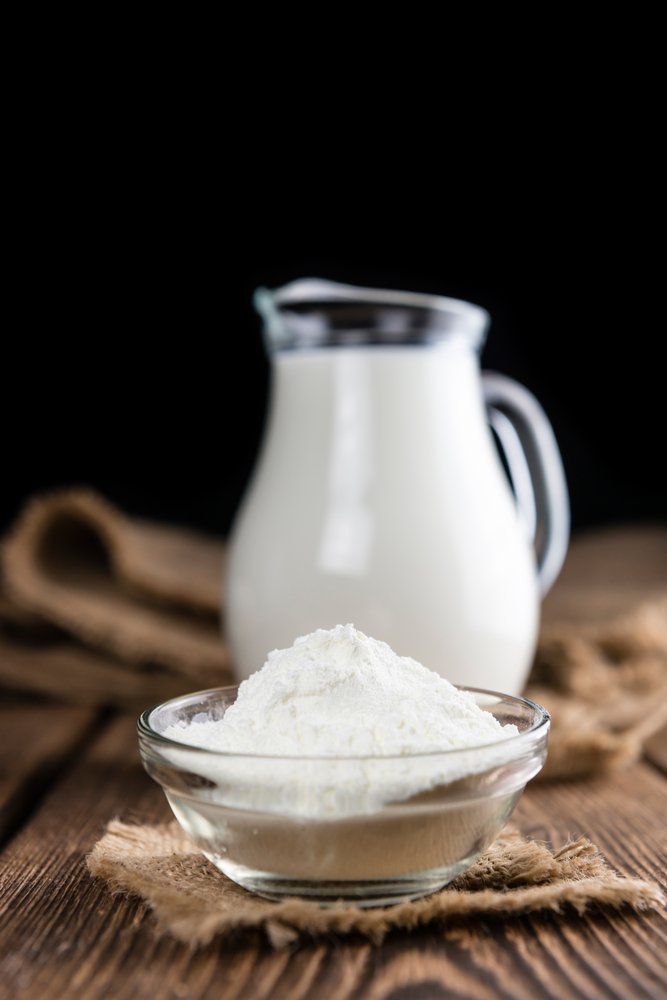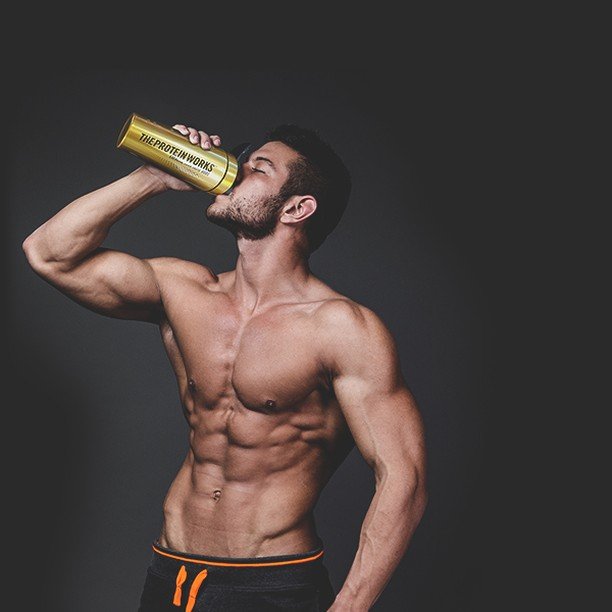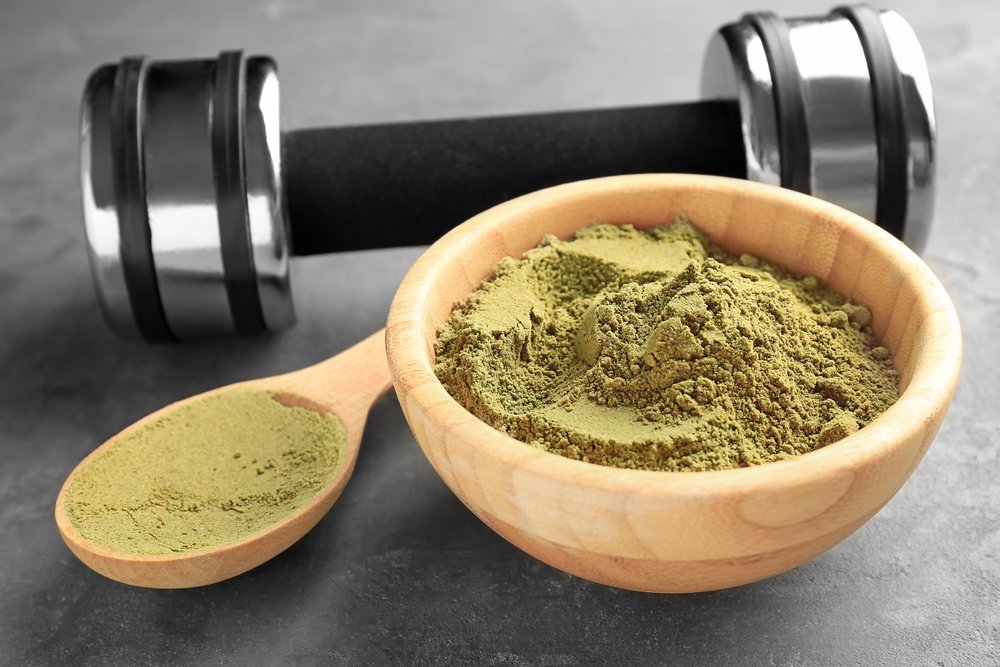
The Best Vitamins & Minerals For Hair, Skin & Nails
Solid nutrition is key to nearly all aspects of health and maintaining a healthy appearance is no different.
We all know the importance of macronutrients (fats, carbs & proteins) but quite often it is our micronutrient (vitamins & minerals) intake that can be neglected, especially with the abundance of processed foods in many of our diets.
Unfortunately it is these vitamins and minerals that play the largest roles in maintaining a healthy appearance!
Not to worry though, we’ve outlined which vitamins and minerals you need to keep your hair, skin and nails healthy – as well as where to find them!
Vitamin A
Also known as retinol, vitamin A is one of the most important compounds for our health.
All cells need retinol for growth, including hair and skin cells, and those that are deficient in vitamin A have been known to experience hair loss (1)
This is partly due to retinol’s important role in creating sebum, which moisturizes the scalp to keep hair healthy – Of course this also helps maintain healthy skin too!
The best sources of vitamin A are dairy products, eggs and oily fish but it can also be consumed through plant based sources such as sweet potato and spinach.
 B Vitamins
B Vitamins
Comprised of 12 total vitamins, the B vitamin complex plays an important role in the health of our hair, skin and nails by carrying oxygen and nutrients to them.
Vitamin B7, or biotin, is perhaps the most high profile of these and can be found in nearly all beauty supplements. It is made naturally by bacteria within the gut and those that are deficient can show symptoms of hair loss and rashes, as well as brittle nails.
Although deficiency is rare (2), you should still make sure that you are eating food such as eggs, nuts, whole grains, liver & banana to avoid this.
Vitamins B2 and B3 – found in meat, eggs, wheat and dairy – help support healthy skin and vitamins B9 & B12 help promote nail strength, reducing brittleness. Vitamin B9 is found in dark green vegetables and citrus fruits whereas B12 is found in meats, poultry and fish.
Vitamin C
Vitamin C is found in the outer (Epidermis) and inner (dermis) layers of the skin and is a powerful antioxidant that helps protect your body against oxidative stress caused by free radicals. These free radicals can impair hair growth, cause dry skin and even wrinkles! (3)
Vitamin C, found primarily in citrus fruits, also helps create collagen, which is one of the building blocks of your hair and skin!
 Vitamin D
Vitamin D
Although skin experts will tell you to avoid over exposure to the sun, sunlight and it’s UV rays are extremely important for creating vitamin D which promotes healthy skin and hair.
Vitamin D helps create new healthy skin cells and hair follicles, which are pores in the scalp through which new hair can grow!
Not consuming enough vitamin D has been linked to hair loss and therefore you should ensure that you’re consuming plenty of oily fish, egg yolks, red meats or alternatively you can take a highly popular vitamin D supplement.
Vitamin E
Vitamin E acts in a similar way to vitamin C, in that it is an antioxidant and it absorbs harmful UV light to minimise damage which prevents dark spots and wrinkles (4)
Mostly found in vegetable oils, leafy greens and seeds, vitamin E can also counteract dry skin that occurs through a lack of sebum.
Selenium
Perhaps the least well known item on this list, selenium is an essential mineral that acts as an antioxidant (5).
As we know, this means that it protects against excess free radicals that cause oxidative stress and damage healthy cells, including those of your hair, skin and nails!
As selenium is an essential mineral, it cannot be produced by your body and must be consumed through diet. Brazil nuts, seafoods, dairy products and organ meats are highest in selenium.
Iron, Zinc & Magnesium
Iron is a vital mineral that is required for growth and development and your body uses it to make haemoglobin which carries oxygen to all your cells, including your nails.
As such, iron is extremely important for the health of your nails (5) and is commonly found in leafy greens, beef, chicken and fish.
Similarly, magnesium is heavily involved in nail growth through its role in protein synthesis and over 50 % of us are deficient in this vitamin (6)
Whole grains, leafy greens and almonds are good sources of magnesium, so be sure to include these in your diet!
Zinc is known to maintain healthy hair, nails and skin through its important role in tissue growth and repair. It occurs in meats and dairy products, as well as nuts and legumes – so there is plenty of opportunity to include zinc in your diet.
 The Take Home
The Take Home
We’ve just outlined A LOT of vitamins and minerals there and it might sound difficult to ensure you’re consuming all of these. However, a healthy balanced diet with plenty of vegetables, grains, meats and legumes will set you up nicely to hit all these micronutrients!
You should always focus on whole foods first, but don’t worry if you have dietary needs that mean you cannot consume certain foods on this list! If necessary you can always take dietary vitamin supplements to keep your hair, skin and nails healthy – and we’d advise to take a multivitamin anyway, as these micronutrients are massively important to other aspects of your health as well!
References
- Almohanna, H.M., Ahmed, A.A., Tsatalis, J.P. and Tosti, A., 2019. The role of vitamins and minerals in hair loss: a review. Dermatology and therapy, 9(1), pp.51-70.
- Patel, D.P., Swink, S.M. and Castelo-Soccio, L., 2017. A review of the use of biotin for hair loss. Skin appendage disorders, 3(3), pp.166-169.
- Pullar, J.M., Carr, A.C. and Vissers, M., 2017. The roles of vitamin C in skin health. Nutrients, 9(8), p.866.
- Keen, M.A. and Hassan, I., 2016. Vitamin E in dermatology. Indian dermatology online journal, 7(4), p.311.
- Burk, R.F., 2002. Selenium, an antioxidant nutrient. Nutrition in clinical Care, 5(2), pp.75-79.
- Sato, S., 1991, December. Iron deficiency: structural and microchemical changes in hair, nails, and skin. In Seminars in dermatology (Vol. 10, No. 4, pp. 313-319).
- Workinger, J.L., Doyle, R. and Bortz, J., 2018. Challenges in the diagnosis of magnesium status. Nutrients, 10(9), p.1202


 B Vitamins
B Vitamins Vitamin D
Vitamin D  The Take Home
The Take Home 



No Comments yet!